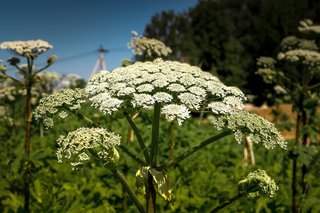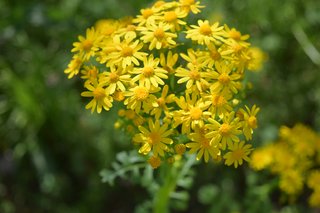Children are naturally curious. A farm is a very tempting place for them. But a farm is a place of work. Children can sometimes be injured or killed on farms.
Important
Never allow a child onto a farmyard unless they are closely supervised by an adult. It's not possible to safely look after a child and work on the farm at the same time.
Always tell any visitors or workers on the farm that there are children nearby.
Create a safe place on the farm for children
If you live on a farm you must:
- keep children out of work areas
- have a safe play area that is fenced off and in full view of the home
- have fencing with mesh right down to the ground - so that children cannot slip through gates and fences or climb over them
- have danger signs that are easy to read and tell children what they mean
You should also do a risk assessment to find any risks to child safety around the farm.
Download the Health and Safety Authority risk assessment form (PDF, 2.7 MB, 36 pages)
Teach your child how to be safe on the farm
Talk to children about safety on the farm. Tell them about the dangers and set the rules.
But do not expect a child to keep themselves safe. Children do not understand danger.
Dangers on the farm include:
- falls or drowning
- farm machinery
- chemicals and poison
- farm animals
Preventing falls on the farm
Children like to climb. Many serious or fatal injuries happen after a fall from a height, or when a child has been hit by a falling or moving object.
Things you can do to prevent falls:
- Make sure there is no access to high areas.
- Store ladders on the ground or on wall brackets, so they cannot be climbed.
- Keep all buildings, walls and fences in a good and safe condition.
- Store items and equipment such as wire fencing and gates until you are ready to assemble them.
- Secure gates and doors - heavy swinging gates or doors are very dangerous, especially in high winds.
Don't
-
do not let children play on bales - they can fall off them or between them and suffocate
-
do not leave equipment or items against walls, sheds or other structures - children may climb on them or cause them to fall onto themselves
Preventing drowning on the farm
Even a shower of rain can fill a container enough for a child to drown in. To keep children safe from water outside:
- empty, fence off or safely cover anything that can collect water - this includes wells, ponds, drains, soak pits and water tanks
- never leave children alone on a farm
- fence off exposed areas, including slurry pits - slurry is both a drowning and suffocation risk
- remind children to stay away from edges - shortened to SAFE
How to keep your child safe around water
Farm machinery and children
Children should never be allowed near tractors and farm machinery, whether they are in use or not. An adult should always closely supervise them.
You should always:
- lock unattended vehicles
- park vehicles safely with the handbrake on
- remove keys and keep them away from children
- lower all loaders to the ground
- guard all moving parts of machinery
- put safety measures in place when you've finished using machinery
Children under 7 years old should not be allowed in the cab of a tractor or other farm machinery, even with a passenger seat.
Children aged between 7 and 16 should not be allowed on tractors or trailers unless you have done a full risk assessment and:
- it has a safety cab or frame fitted with a proper passenger seat with seat belts
- they follow strict rules not to touch controls
- they keep the seat belt on
- they understand not to distract the driver
Set clear rules. Do not give children the habit of 'getting spins' on tractors and other farm machinery.
Farm animals and child safety
Children will want to touch animals. But they need to understand that animals can be dangerous.
You should:
- keep children at a safe distance from livestock
- remember that animals guarding their young could be more aggressive and unpredictable than usual
- fit correct fencing and gates
- supervise children if they are close to or feeding any animal
- teach children to always wash their hands after being with animals
- keep sick animals away from children
Chemicals and poisons around the farm
Children under 16 should never handle chemicals.
Keep all pesticides, cleaning fluids, veterinary medicines and equipment:
- away from children
- in their original labelled containers
- in a securely locked store
Never use soft drink bottles for storage of chemicals, medicines, pesticides or any other poisonous or harmful substances.
Poisonous plants
Some plants are also poisonous.
Children should not:
- eat wild mushrooms or berries without first checking with an adult
- pick ragwort
- touch hogweed (often found near rivers and lakes) as it can cause nasty skin irritation
- touch weeds, foxglove or poison ivy


Farming and the law
By law, all farmers must:
- have a safety statement that follows the Safety, Health and Welfare at Work Act 2005 if there are more than 3 employees
- follow the farm safety code of practice if there are 3 or fewer employees
- store guns safely and follow the firearms regulations